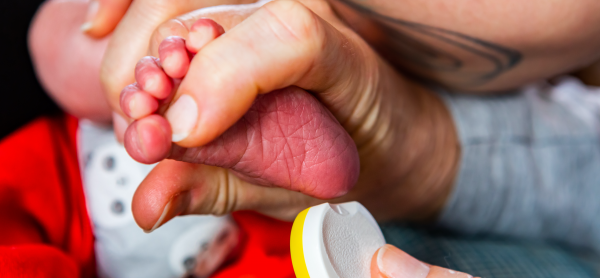Better Access Australia says the federal government missed an opportunity in Tuesday's Budget to address the fundamental flaws in Australia's approach to newborn screening.
“The Government's listing of a gene therapy for Spinal Muscular Atrophy Types 1 and 2 (SMA) should be cause for congratulations, but the sad reality is that two out of three babies that would benefit from this treatment will suffer irreparable damage due to delays in diagnosis because of Australia’s postcode lottery for newborn screening," said the organisation's chair Felicity McNeill PSM.
“With only NSW and ACT screening for SMA, the 200,000 babies born anywhere else in Australia will miss out on early diagnosis and treatment. When time to diagnosis matters both for ensuring the best response to treatment, and in some instances qualifying for access to treatment, the risk of no access to this ‘life-saving and life-changing' treatment is, unfortunately, going to be the reality for most babies born in Australia with SMA.
“And unfortunately, this story is not unique to SMA with dozens of other lifesaving treatments available to treat many diseases available in Australia today but not included in newborn screening.”
Better Access Australia (BAA) said Australia only screens nationally for 25 diseases. This compares to California which screens for 80 diseases, of which 76 have treatments.
“Too often, by the time a baby is diagnosed in Australia, irreparable cognitive or physical deterioration has already occurred, often leading to death," said Ms McNeill.
BAA called for the program to be made universal, like Australia’s National Immunisation Program, with an immediate review to include the 55 diseases screened for in California. It should include bi-annual reviews to ensure it remains contemporary.
“2,500 Australian children are being lost every year to perinatal and congenital health conditions. As last year’s Women’s Budget Statement acknowledged, it is the largest cause of death for girls aged 0-14 and the third largest for boys. Many of these deaths could be prevented by bringing Australia’s 1990s newborn screening program into the 21st century by expanding national newborn screening," continued Ms McNeill.
“Recent national polling shows the Australian community knows that the current state of newborn screening in Australia for rare diseases is simply not good enough and it’s time to fix this – whatever it costs.
“In the recent Kore poll of 1258 Australians, 84% of respondents agreed that Australia should screen newborn babies for more diseases,” said Ms McNeill.
“A whopping 95% of respondents said they would be willing to spend upwards of $50 per baby, with 68% saying 'Whatever it costs' to match California’s standard of 80 diseases.”
“The good news is that it would only cost around $10-$20 per baby to improve our screening program. An incredibly small investment for such a huge saving of time to diagnosis, and maximum benefit of treatment for a healthier, longer life for kids with rare diseases.
“On Budget Day, 821 babies were born. Up to 5 of those babies will now go undiagnosed for one of 50 treatable diseases in Australia and suffer unnecessary irreparable damage to their health.
“With that reality on all our consciences, it’s time for all sides of the parliament to do more to save our babies and see Australia once again a world leader in this most important area of unmet health need – and fund expanded national newborn screening today,” added Ms McNeill.
